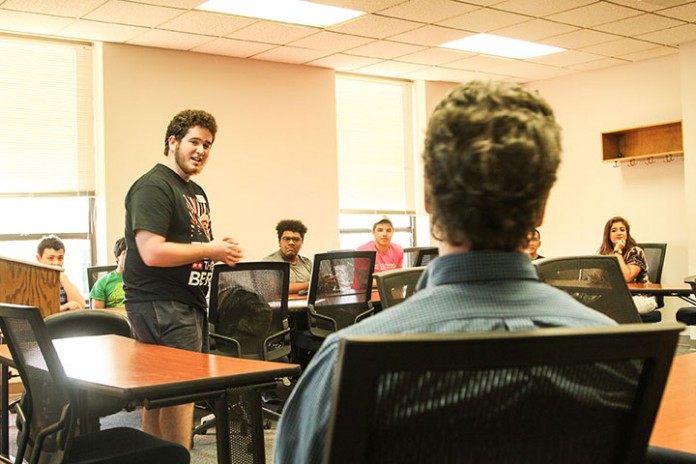
By Helena Hunt, Staff Writer
A number of Baylor students seek to create a culture of political engagement on campus, both before and after the upcoming presidential elections.
College Republicans, Baylor Democrats and the discussion group Civitas are among several student-led groups that seek to educate young voters and bring them to the polls on election day. However, according to Dr. Patrick Flavin, assistant professor of political science at Baylor, these groups face an apathetic target audience.
“If you look at who turns out to vote, older people vote at much higher rates than younger people, so students in the 18 to 25 age group are the least likely to vote,” Flavin said.
If students do not vote, Flavin said, their views will not necessarily be represented in the local and federal levels of government.
McKinney junior Nan Tolson said that although she was interested in politics from a young age, at one point she felt that her vote and her viewpoint were inconsequential.
“Growing up, I felt my one vote didn’t change anything,” Tolson said. “But if everyone gets involved, it can make a difference.”
The political environment at Baylor may also contribute to some degree of apathy among students. Medford, Ore., sophomore Micah Furlong, president of the Baylor Democrats, notes that Democrats may not feel they can make an impact on campus due to what they perceive as their minority status.
“Liberals on Baylor campus feel as though they’re going to be ignored,” Furlong said. “And because they feel they’re going to be ignored, they don’t speak up.”
Although Little Rock, Ark., junior Sara Grove is president of the College Republicans, she has noticed a lack of involvement among student members of her party as well.
“A lot of young people, unless [they] have a passion for politics, don’t usually care that much,” Grove said. “That mentality may be even stronger here, in a state like Texas, where people know that many of the elected officials are Republicans.”
Flavin said that students need to be reminded of the influence they can wield by voting and engaging in politics.
“The blunt truth is that politicians don’t have a reason to pay attention to people who don’t vote,” Flavin said.
There are some politicians, however, who are paying particular attention to young voters. A feature of Hillary Clinton’s presidential campaign is the New College Compact, which directly appeals to young voters by making public college education debt-free and cutting interest rates for student loans. Rand Paul has also spent considerable effort harnessing young votes with his Students for Rand campaign. These campaign messages signal to students their importance in the election cycle. Tolson, for one, has embraced this responsibility by starting a Students for Rand group, which is unaffiliated with Baylor University.
“We want to recruit and mobilize students to vote for Rand Paul in the primary and hopefully the national elections,” Tolson said.
But Furlong and Grove agree that students must be educated of political issues before they choose a candidate.
“I think political engagement is important no matter your political convictions,” Furlong said. “I’m much more interested in people participating in the process than in keeping people out. Other people can disenfranchise people. That’s not what I’m interested in. I’m interested in a real democracy, and that means listening to each other.”
Furlong is working with Grove to organize voter registrations and hold dialogues between the two parties on campus. Like Furlong, Grove said that her organization is primarily meant to educate, not proselytize.
“At our meeting last night we explained to the students that the club isn’t just for people who love politics, want to be in politics, or want to be a lawyer, but it’s also for people who want to understand politics and where they stand,” Grove said.
Other discussion groups like Baylor Civitas also aim to educate students.
“Civitas tries to engage citizens in weekly discussions on current events,” said Burleson junior Elayne Allen, a member of Civitas.
These students, whether they are raising awareness of particular candidates, registering student voters, or educating their peers on political issues, are working to challenge assumptions about student political involvement.
“Voting is a privilege,” Tolson said. “I think it’s so important for students to know having a vote isn’t something to take for granted.”





